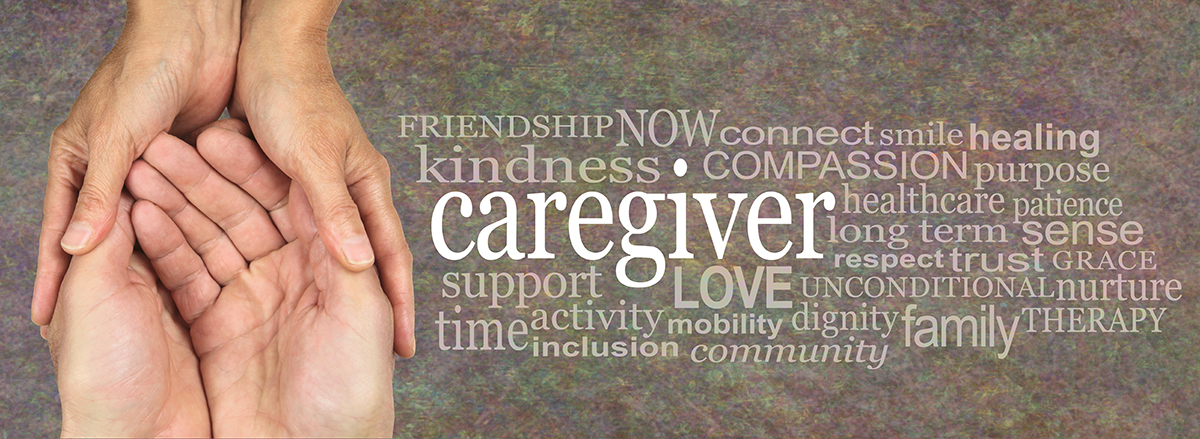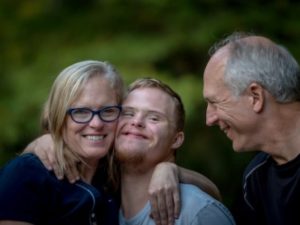More than ever before, caregiving is recognized as a critical element of everyday life for millions of families of adults with disabilities throughout the United States.
The types of care that caregivers for adults with disabilities provide range from personal (bathing, dressing, helping with toileting, feeding) to everyday tasks and activities (preparing meals, providing transportation, handling finances, managing medications, coordinating services, communicating with healthcare professionals).
Not just anyone is qualified to be a caregiver. They must be nurturing people who treat their clients with respect and dignity and maintain a compassionate and kind demeanor even when clients may become irritable, demanding, or other emotional states.
It takes compassion and heart to be a caregiver.
We recently interviewed Jason, who works for Home Community Based Services Providers (HCBS) about a day in the life of a caregiver for adults with disabilities and how he has taken on that role and thrived for so many years.
How long have you been working in this career field, and what attracted you to it?
I guess the answer is almost 20 years. I love working with people, helping them, and serving them. I started working with kids with disabilities and then developed a love for working with adults with disabilities as well. There is a challenge to supporting people with disabilities and meeting their unique needs. I like that challenge, and I love the people that I get to meet with and help daily.
 What does a typical day look like for you?
What does a typical day look like for you?
A typical day is filled with routines that are designed to support the individual with the disability that I serve. So a typical day is predictable and filled with those routines and activities that are enjoyable, meaningful, and contribute to the quality of life of the individual. Each individual is different. For example, we might do daily care activities like getting dressed, and typical things that might be done around the house. And we also do activities like horseback riding, community integration like a trip to the store, and the YMCA. So, there are both regular daily activities as well as extracurricular activities. Simple things like going to somewhere like Target for community integration with allows them to not only shop for themselves and say, pick out a snack but also allows them to get some exercise by pushing the cart through the store. Stuff like this allows them to have different experiences and exposure to the community in different environments and opportunities.
For example, one of my clients is nonverbal. So he cannot really say “I want to try this cookie or that chip,” so if you take them to the store they can show you exactly what they want, and that is a good experience for them.
You must have seen some unfortunate situations, what keeps you going every day?
I think it is just important to understand the core meaning of the job. You are taking care of people. I think it’s that mission statement and that purpose that is meaningful and that we are doing a powerful thing. That is why I am supportive of the work and why I keep coming back to work every day for the last 20 years.
Is it hard to separate work and home life?
No, not for me. It is pretty clear, which is which. I come into work with a focus on work and on my client. I focus on the job and leave any personal stuff at the door. To be a good caregiver, you have to separate personal and professional and put a full focus on your client while you are there.
What are the top skills you feel someone needs to do this job well?
I would say that a person really needs to have patience and compassion. I think they also need to know how to communicate and understand people with disabilities. I think if a person has that, everything else will fall into place.
Tell us about one of your favorite moments with a client.
It is difficult to think of one singular thing because there are things that happen every day that are really some of my favorite moments. They are routine moments that I find funny or where the client does something funny or humorous and lighthearted that lets us enjoy a laugh together. I have one client, who every once in a while, you will see him looking around, and he has this look on his face like he has a secret, and he isn’t supposed to spill it, and all the while he has this smirk on his face. And then you think, I wonder what he is thinking, so it is moments like that where you find the humor.
What do you like best about working with HCBS?
I would say that I think everyone who works at the company is dedicated, professional, caring, and available. They are respectful, and they have integrity, and that is a difficult quality to find in people sometimes. I know that if I need them, they are going to show up, they are going to be there.
Twenty years is a long time for someone to be in the industry of caregiving. It certainly takes a special individual to continue to be passionate about their career in caregiving for such a long time. Jason may have days where he wonders what is next, but he appreciates the job and the feeling of knowing that he is taking care of his clients and bettering their lives each and every day by showing up with a smile on his face. This kind of person brings it home in a special kind of way – thank you, Jason, for your long-time service and dedication to taking care of the people who need you the most.





